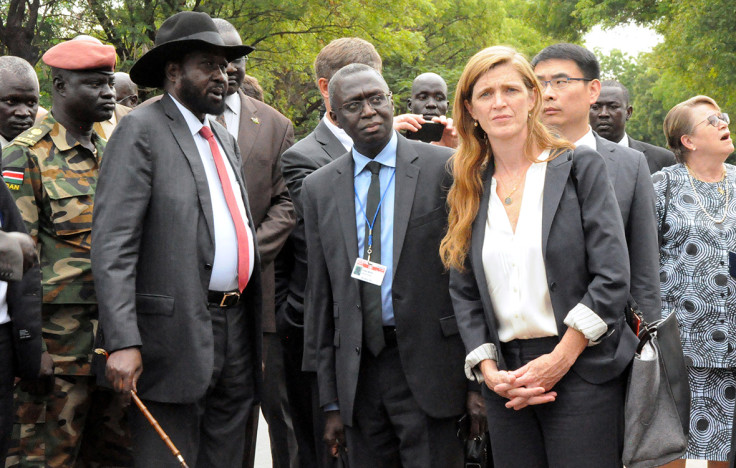Arms embargo 'could turn South Sudan into new Somalia'
Arms embargo could weaken government's ability to quell civil war and counter LRA attacks, says security expert.
Any further sanctions or arms embargoes on South Sudan could weaken the government and create an imbalance of power in the region, a security expert has told IBTimes UK. David Otto, counterterrorism expert at UK-based TGS Intelligence Consultants, made the comment after Russia opposed a United Nations-proposed arms embargo in South Sudan, which plunged into a civil war in 2013.
The proposal was put forward after UN Secretary-General Ban Ki-moon criticised South Sudan President Salva Kiir's government for allegedly failing to cooperate with the UN peacekeeping mission deployed in the country.
However, Russia claimed the embargo was not necessary as South Sudan was "not impeding or increasing difficulties".
"South Sudan is geographically surrounded by hostile neighbours," said Otto, who is also a senior adviser for Global Risk International (GRI).
"At the moment Kiir's government has agreed to the deployment of a regional protection force as demanded by the UN and the AU – that means the grounds for arms embargo are not urgent or necessary."
South Sudan could become new Somalia
South Sudan became the world's newest nation after declaring independence from Sudan in 2011. However, the country soon descended into civil war, as Kiir – of the Dinka ethnic group – fired his deputy Riek Machar – from the Nuer group – and his cabinet.
Ethnic-related violence has spread, with militia groups carrying out attacks in villages and areas known to be inhabited by either the Dinka or Nuer tribes.
As many as 50,000 people have been killed – as per estimates by the United Nations – amid allegations of crimes against humanity committed on both sides, including rape, torture and the use of child soldiers. More than one million people have also fled the country due to violence.
More on South Sudan's conflict
Who is vice-president and rebel leader Riek Machar?
Otto explained an arms embargo could encourage rebels – allegedly supported by neighbouring Sudan – to carry out attacks against Kiir's government, which would be weakened by the embargo.
South Sudan also experiences attacks by the Uganda-based Lord's Resistance Army ( LRA) rebel group.
"All these factors must be taken into consideration before any attempts are made to further weaken the government and create more instability," Otto said.
"Sometimes arms embargo can be an effective strategy to force governments to work towards peace – however, the circumstances in the state must be well evaluated and balanced. It is unlikely that in these circumstances, arms embargo will be the best of solutions. In fact it could turn South Sudan another Somalia."

Arms embargo in Somalia
In 1992, the UN imposed an arms embargo in Somalia, ravaged by a civil war which started in 1986. However, rebel groups continued to fight for the hegemony of territories. The civil war and instability provided fertile ground for the birth of Al-Shabaab militant group.
The terrorists, affiliated with al-Qaeda and the Islamic State (Isis/Daesh), aims to overthrow the Somali government and impose its own version of Islam in the country.
It controlled Mogadishu and the southern region of Somalia from 2006 until 2011, when it was defeated by African Union peacekeepers.
Shabaab often targets Kenya in retaliation for the Linda Nchi military operation, which saw the deployment of Kenyan troops to Somalia to drive out the militants in 2011.
In 2013, The UN agreed to partially lift the arms embargo for one year, to allow the Somali government to buy light weapons to strengthen its security forces against the militants.
The Somali government has repeatedly called on the UN to lift the embargo.
© Copyright IBTimes 2025. All rights reserved.





















